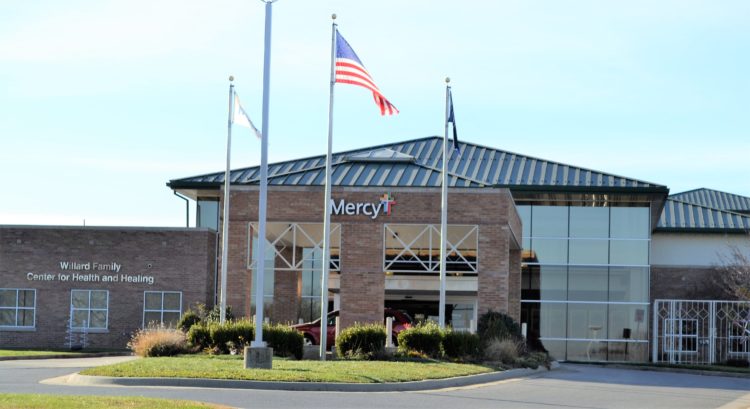Primary Care Services to Continue through Agreement with CHC/SEK
FORT SCOTT, Kan. (October 1, 2018) – In the face of declining patient numbers and shrinking reimbursement, Mercy has made the difficult decision to close Mercy Hospital Fort Scott by the end of the year. The decision was made following months of exploring options for keeping hospital services in the community.
At the same time, there is a plan for continuing physician services in the area. Mercy is finalizing an agreement with the Community Health Center of Southeast Kansas (CHC/SEK), the federally qualified health clinic based in Pittsburg, to maintain primary care services in Fort Scott and other nearby communities in which there are Mercy Clinic locations. All Mercy Clinic Fort Scott primary care physicians have committed to continue practicing in the area as part of CHC/SEK. The two organizations expect to share more information soon.
“Mercy Hospital has been privileged to serve Fort Scott since 1886. Like many rural hospitals across the country, we have struggled to remain viable as community needs have changed,” said Reta Baker, hospital president. “We considered – and exhausted – every possibility for keeping our doors open, and ultimately we had to acknowledge that it’s a different era for hospital care in Fort Scott. There are many options in nearby communities for patients seeking hospital care, and there are many challenges we didn’t have in years past. Our hearts are heavy, but it’s the decision we know has to be made.”
The hospital will close by December 31, including all inpatient services, the emergency department and ambulatory surgery.
Mercy first announced the need to explore options for future sustainability in 2014, citing trends that included patients leaving the area to seek health care services in larger communities and declining reimbursement, especially from government payers which make up the largest source of revenue. The announcement was followed by an 18-month discernment process, which ended in 2015 with the understanding that should these trends continue, Mercy would need to revisit plans for the future.
“That time came earlier this year, and a new process of evaluating solutions was undertaken,” said Baker. “Unfortunately, the health care environment in Fort Scott has not improved, and in fact we’ve encountered the additional challenge of successfully recruiting and retaining physicians in the community.”
To prepare for closing the hospital, Mercy will undertake the required regulatory and legal notices and procedures, including notifying state and federal agencies and payers.
Mercy is developing plans to support hospital co-workers in through the closure process, and all will be treated with compassion and respect. There may be the possibility for some co-workers to transfer to other Mercy facilities.
“Having closed our hospital in Independence, Kansas, in 2015, we know how difficult this news is to hear – not only for our Fort Scott co-workers and the community, but for everyone across Mercy. Our prayers are with everyone impacted by this decision,” said Lynn Britton, Mercy president and chief executive officer. “We also know that the Sisters who served before us had to make similar decisions in light of changing community needs, and we draw strength from their courage.”
Mercy, named one of the top five large U.S. health systems in 2018, 2017 and 2016 by IBM Watson Health, serves millions annually. Mercy includes more than 40 acute care and specialty (heart, children’s, orthopedic and rehab) hospitals, 800 physician practices and outpatient facilities, 44,000 co-workers and 2,100 Mercy Clinic physicians in Arkansas, Kansas, Missouri and Oklahoma. Mercy also has clinics, outpatient services and outreach ministries in Arkansas, Louisiana, Mississippi and Texas. In addition, Mercy’s IT division, Mercy Technology Services, supply chain organization, ROi, and Mercy Virtual commercially serve providers and patients in more than 20 states coast to coast.
supply chain organization, ROi, and Mercy Virtual commercially serve providers and patients in more than 20 states coast to coast.
